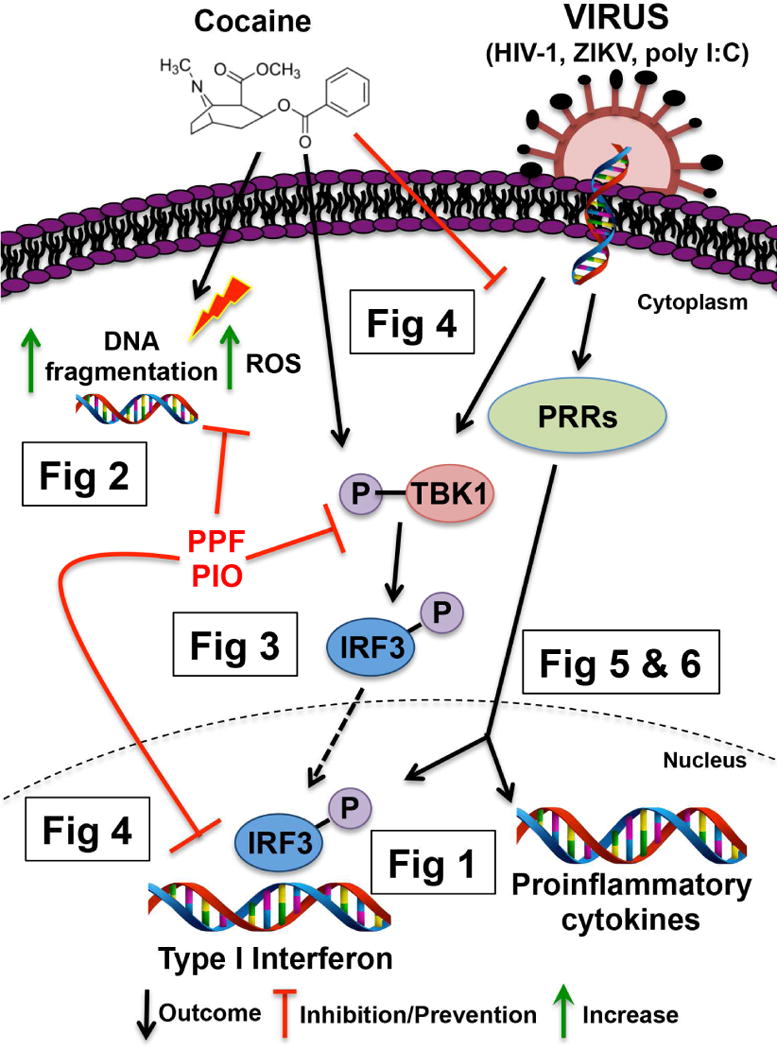Schematic 1. Cocaine induces oxidative stress and type I interferon responses that lead to the attenuation of viral-mediated innate immune responses.

We show in normal human astrocytes (NHA) that cocaine treatment increased type I interferon responses in a concentration-dependent manner (Fig 1). In parallel to increases in type I interferon, cocaine increases intracellular DNA fragmentation and ROS levels that are reduced with antioxidants PPF and PIO (Fig 2). Likewise, antiviral signaling pathway, TBK1/IRF3, is activated by cocaine and HIV-1, but can be prevented with PPF and PIO (Fig 3). Phosphorylation and translocation of IRF3 to the nucleus results in type I interferon gene transcription, including ISG15, IFNα1 and IFNβ1, which are increased upon cocaine, but reduced with PPF and PIO, exposure (Fig 4). Moreover, HIV-1 increased antiviral genes which were also reduced upon cocaine pretreatment; the glial modulators PPF and PIO reduced either cocaine or HIV-1-mediated increases in type I interferon back to baseline levels (Fig 4). Lastly, at the RNA and protein levels, we demonstrated that cocaine pretreatment reduced the ability of HIV-1 or ZIKV to initiate robust type I interferon responses when compared to virus alone (Fig 5 and 6). Thus, our work demonstrates that preventing cocaine-mediated increases in type I interferon by targeting oxidative stress and cytotoxicity with glial modulators, PPF or PIO, may recover viral-mediated increases in astrocyte antiviral responses, allowing for astrocytes to initiate a stronger innate immune response to infiltrating viruses.
